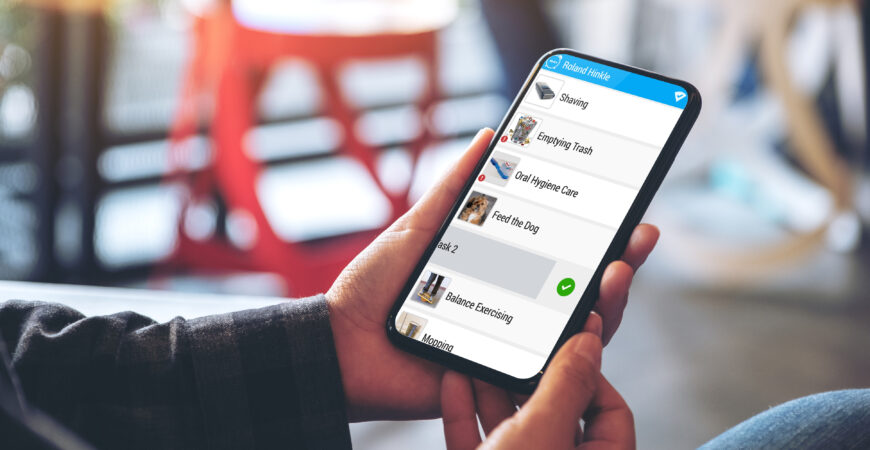Apps for people with intellectual disabilities
Many of the people you serve need task-prompting assistance at home....and at work! Why make them utilize two different enabling technologies?
Task Prompting Apps can reduce stress and anxiety for people with intellectual disabilities and traumatic brain injuries.
Task Prompting Apps can reduce stress and anxiety for people with intellectual disabilities and traumatic brain injuries.
Provider agencies are hiring Enabling Technology Specialists for people with intellectual disabilities.
Many of the people you serve need task-prompting assistance at home....and at work! Why make them utilize two, uniquely different enabling technologies?
What do you do when you can't get your clients (or kids) to remember their daily to-do's? How can you help those with higher needs feel accomplished and responsible?
What exactly does a person centered planning app look like? How does it increase positive outcomes for the people you serve? At CreateAbility, we believe that the power of enabling technology is best described in a real-life scenario of our solutions.
Since the events surrounding 2020, there has been a significant rise in providers’ interest in remote monitoring. Further, there has been a broader acceptance and use of the term “enabling technology” when it comes to remote supports. But what IS the difference between “assistive” and “enabling” technology? Here is a brief explanation to help you...
For many providers, grant funding marks the beginning of large-scale enabling tech pilots. These pilots typically include reporting requirements that document the progress, successes and perhaps, setbacks in the onboarding, adoption and monitoring phases. So, how providers ensure that they can provide positive results back to the grant providers? Here are a few tips to...
INDIANAPOLIS, November 3rd, 2021 – CreateAbility Concepts, Inc., a technology company located in Indianapolis, recently released new, valuable features to its flagship technology solution, MeMinder. The newest version of MeMinder 3.5 enables task instructions to be delivered at a specific time during the day; increasing the level of assistance it provides to people with intellectual...
Find Us
Address:
5058 Evanston Ave
Indianapolis, IN 46205
Contact Us
For more information about how we can customize our solutions to meet your needs, contact:
Already use our solutions? For technical support please contact:
Phone:
(317) 728-6670








